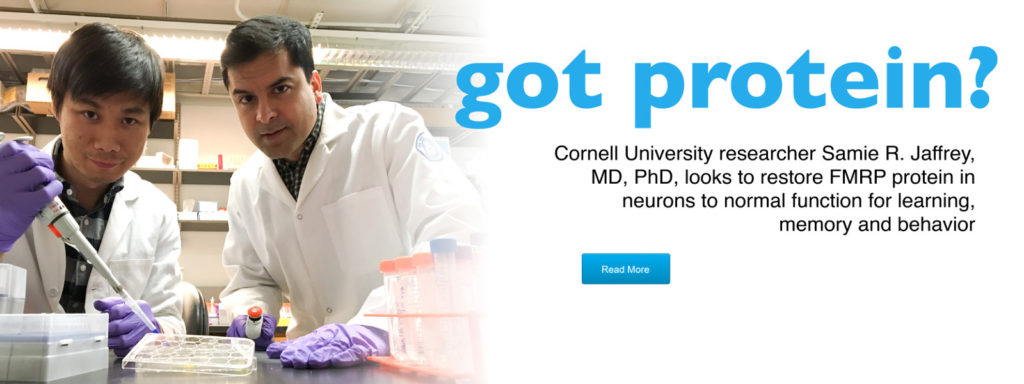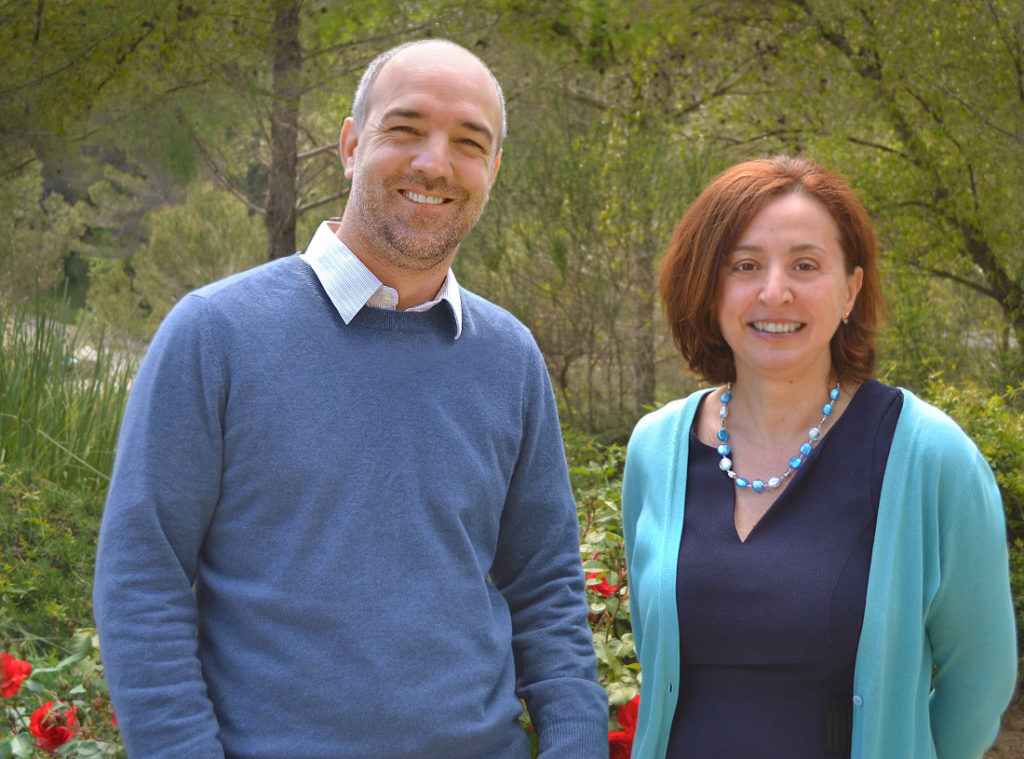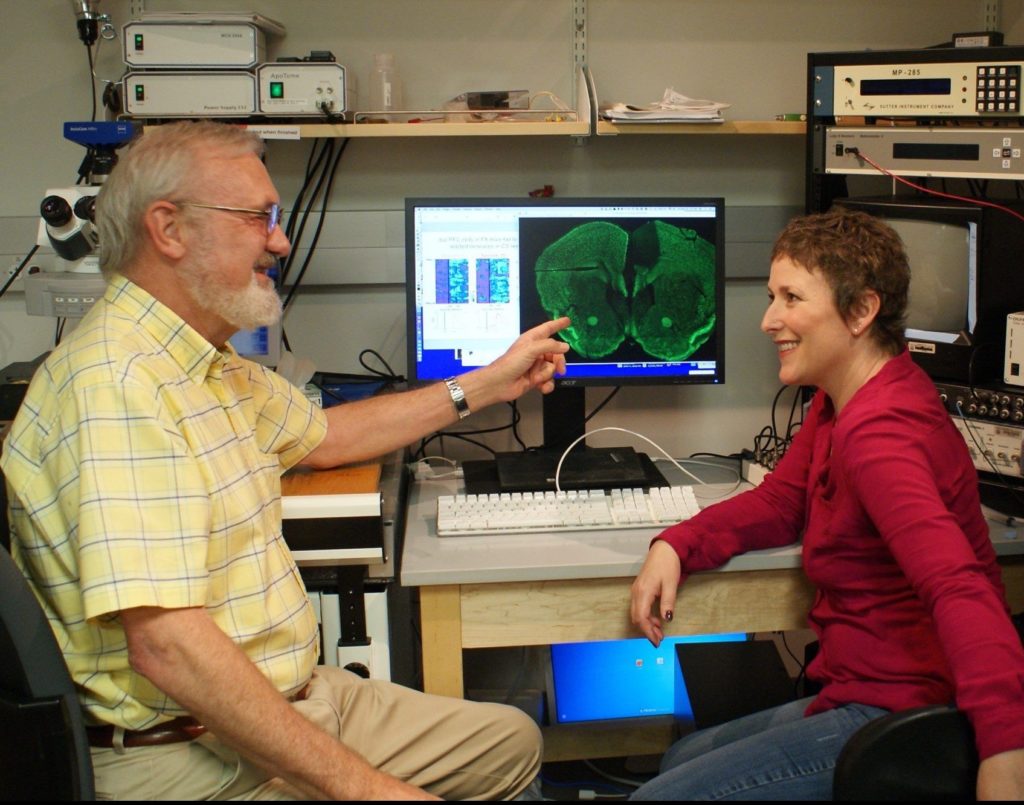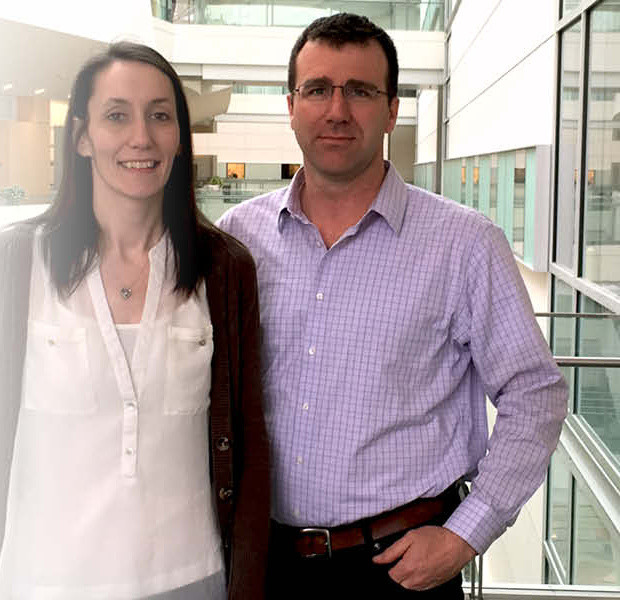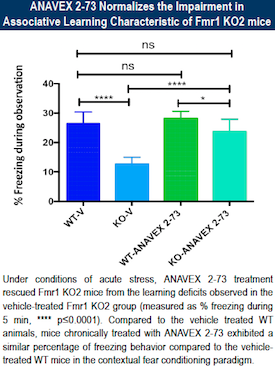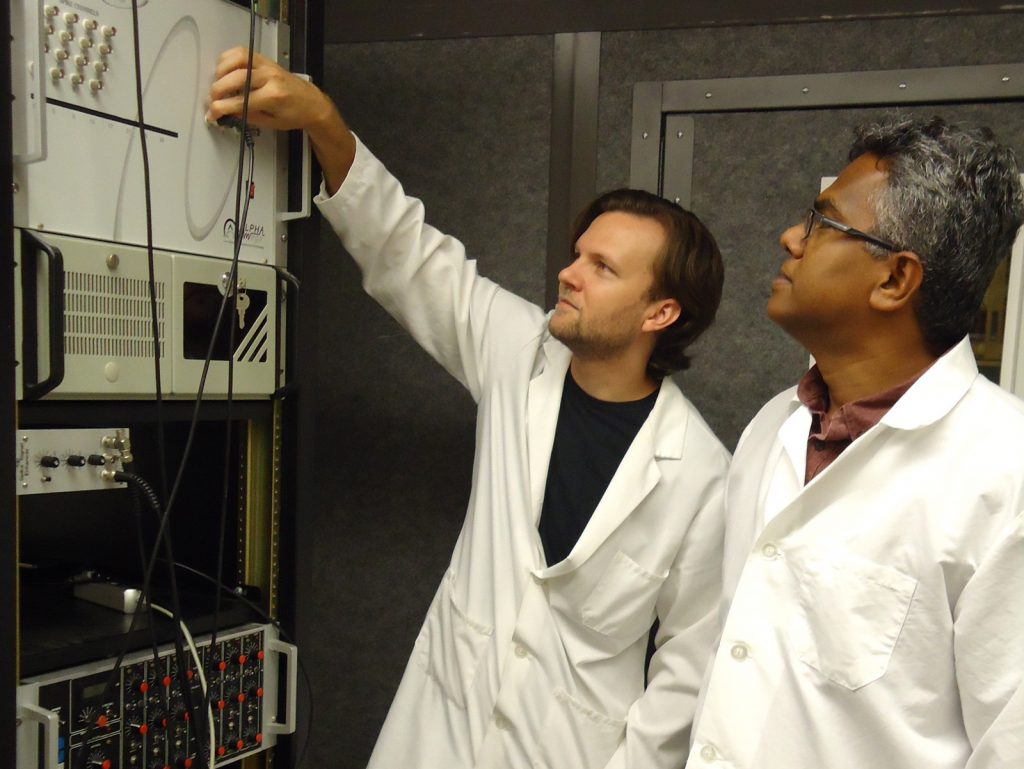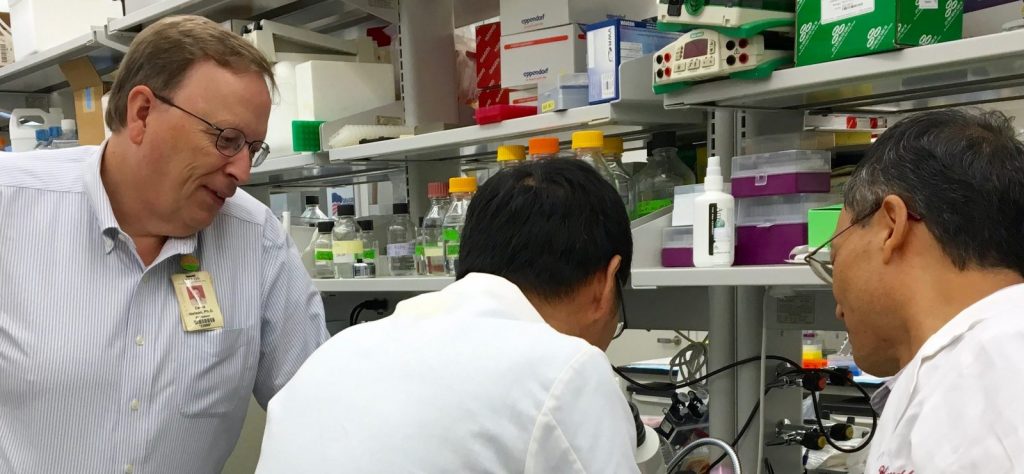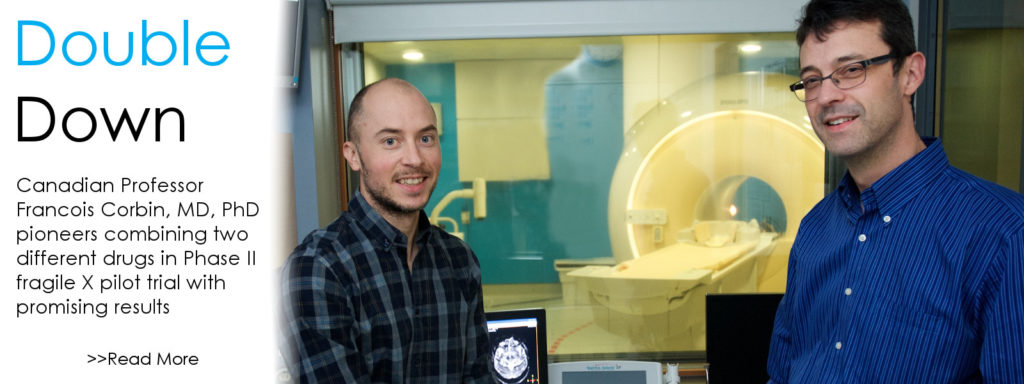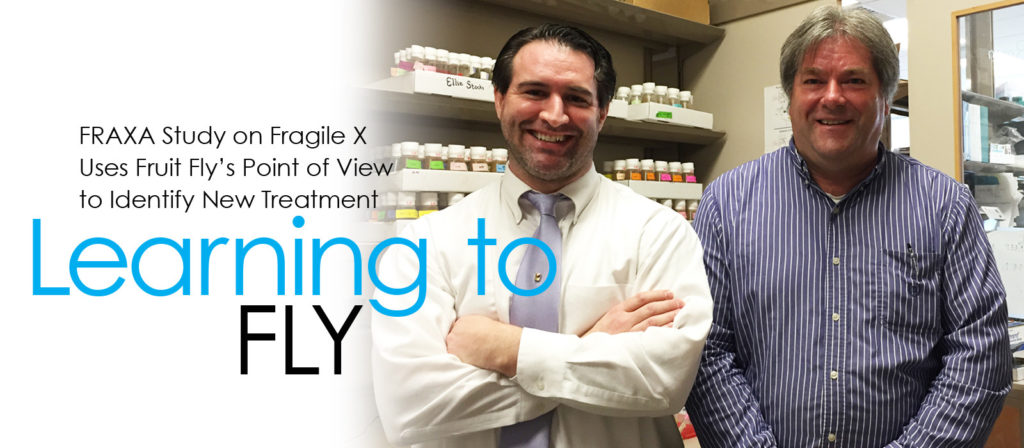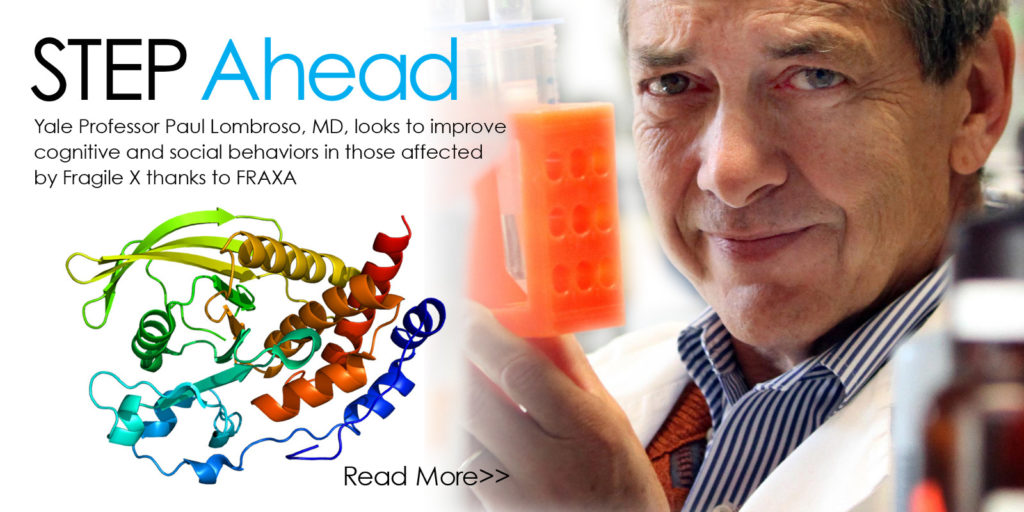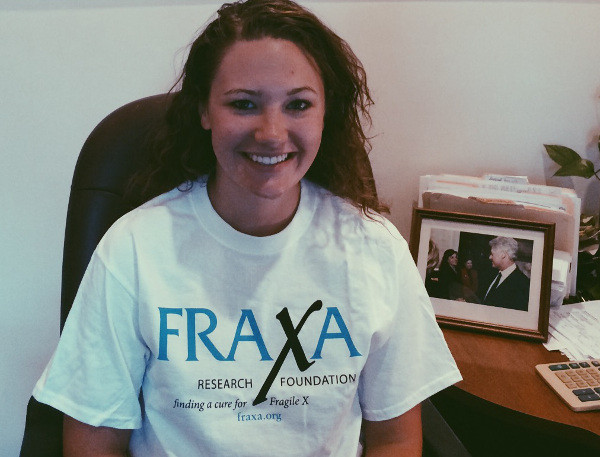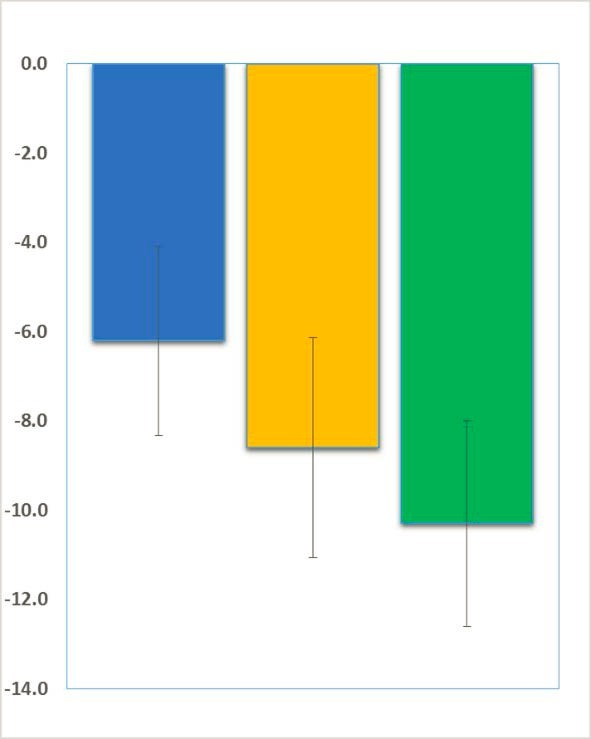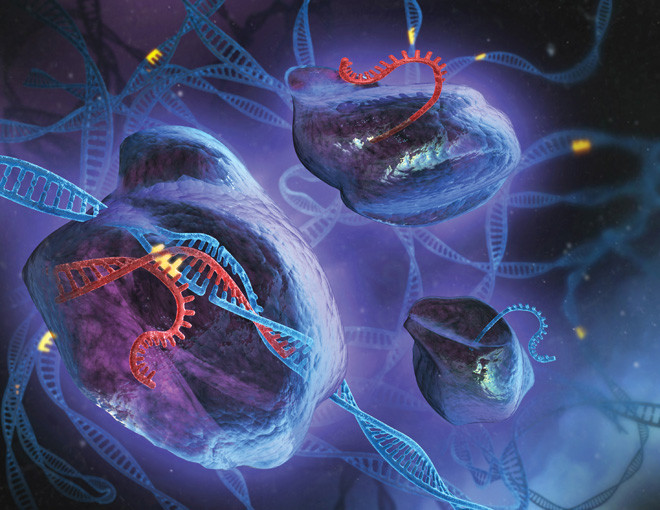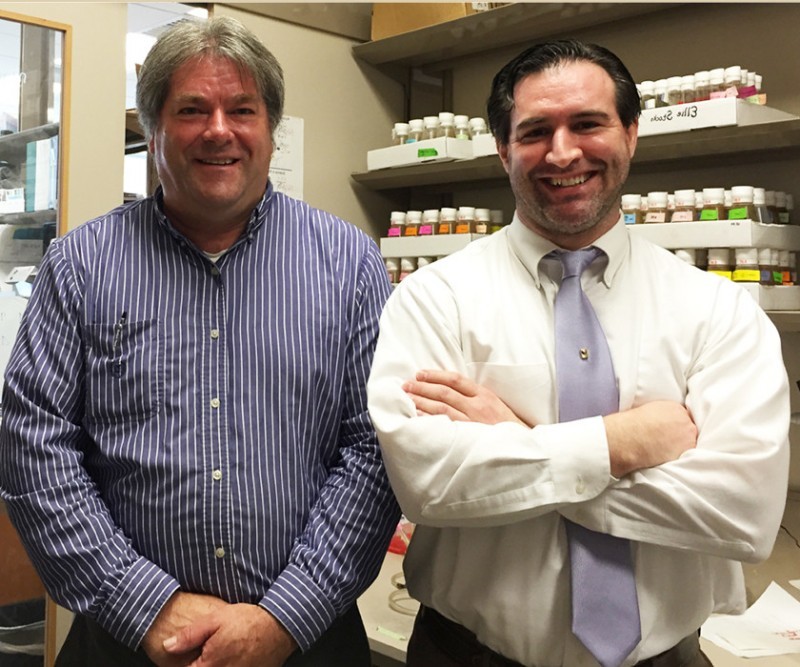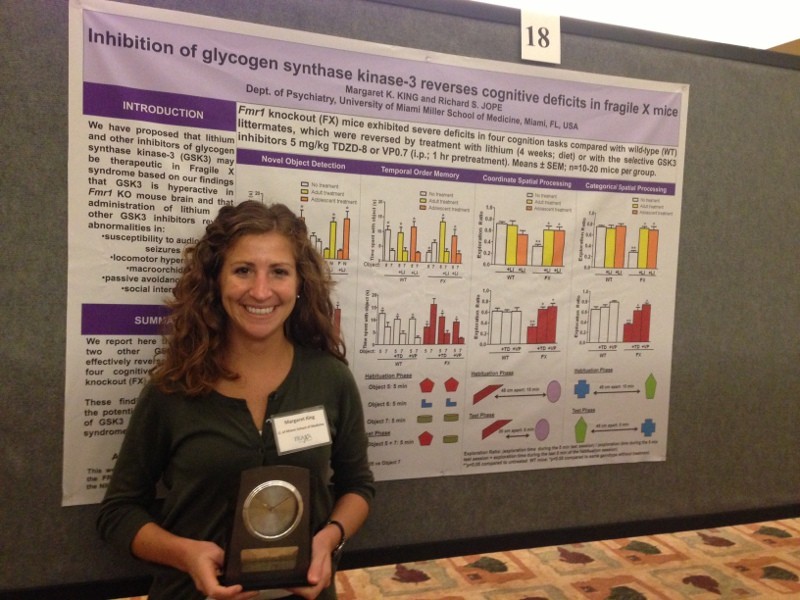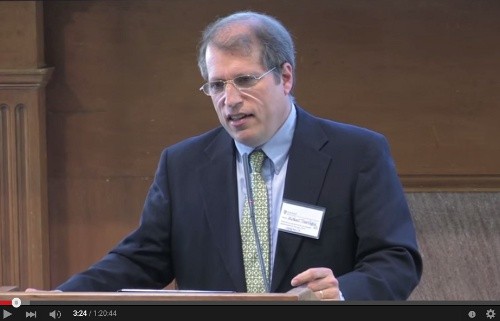Cornell University Researcher Looks to Restore Fragile X Protein in Neurons
Which is the right FMRP for therapeutic development of Fragile X syndrome? When researchers develop effective drugs that reactivate FMRP — the protein that is normally silenced in Fragile X — what in the world will they do next? So ponders Cornell University researcher Samie R. Jaffrey, MD, PhD. Jaffrey, professor, Pharmacology, Weill Cornell Medical College, Cornell University, knows reactivating FMRP will lead to many important questions, such as: Which cell type needs FMRP? How much FMRP protein is needed to restore brain function? Where in the brain will FMRP protein be needed? Where in a neuron will the FMRP needs to be expressed?
Memory Lane: New Research to Improve Memory in Fragile X Mice
University of Texas at Austin Researchers Daniel Johnston, PhD, and Jennifer J. Siegel, PhD, explore ways to Iimprove memory in Fragile X mice.
Achieving Predictability: Developing Biomarkers for Fragile X Patients
New York University scientists make progress developing biomarker signatures and cataloging the types of Fragile X patients who will most likely benefit from new therapies. Take a closer look at your son or daughter with Fragile X syndrome. If you meet another child with Fragile X syndrome, chances are he/she may seem totally different to you, yet everyone is united under a FXS diagnosis. Discovering the biological reasons behind these differences is key to identifying which children will respond to what treatment. But how do you find the ‘prediction formula’? New York University scientists may soon know.
University of Michigan researcher Peter Todd, MD, PhD, Aims to Selectively Turn the Fragile X Gene Back on in Human Cells
Fish like salmon are born in fresh water streams and rivers. When the time comes for them to breed, they return to the stream of their birth to lay eggs in the same spot where they were born. To accomplish this, they must swim upstream against the current or flow of the stream. Taking a page out of the salmon DNA playbook, University of Michigan scientists Peter Todd, MD, PhD, and postdoctoral fellow Jill Haenfler, Ph.D., are exploring unchartered waters to find a cure for Fragile X Syndrome. The researchers are adapting CRISPR research to reactivate the FMR1 gene, which provides instructions for making a protein called FMRP — needed for normal brain development.
New compound from Anavex Improves Learning and Behavior in Fragile X Mice
The investigational drug Anavex 2-73 was able to improve intellectual, learning and hyperactivity measures in a mouse model of Fragile X syndrome. This is a sigma-1 receptor agonist being developed for autism spectrum disorders and Alzheimer’s disease.
Meltdown no more? Targeting Hypersensitivity in Fragile X
Meet Khaleel Razak, PhD, and Jonathan W. Lovelace, PhD, FRAXA-funded researchers at University of California, Riverside who are tackling Fragile X.
Researcher David Nelson, PhD, Explores New Cell Strategies for Fragile X Syndrome, FXTAS and FXPOI
It’s rare to find a researcher working on the Big Three — Fragile X Syndrome (FXS), Fragile X-associated Tremor/Ataxia Syndrome (FXTAS) and Fragile X-associated primary ovarian insufficiency (FXPOI). Then again, David Nelson, PhD, is the rare bird. Nelson is a professor of Molecular and Human Genetics, Baylor College of Medicine, and director of Baylor’s Graduate Program in Integrative Molecular and Biomedical Sciences. He has been involved in FXS research since the late 1980s where he helped identify the mutation and the FMR1 gene. These days, researchers in Nelson’s lab at Baylor are studying FXS, FXTAS and FXPOI using mouse models.
Double Down: Fragile X Clinical Trial Combines Two Available Drugs
If all the science world’s a stage, Fragile X researchers are more than merely players. They are center stage. So believes Francois Corbin, MD, PhD, professor, Université de Sherbrooke, Canada, who directs the university’s Fragile X Clinic. Corbin, who has received more than $100,000 in FRAXA support since 2012, is leading a pilot randomized Phase II trial, exploring the tolerability and the synergistic effect of a combined therapy.
The X Factor – Turning on X Chromosome Genes to Treat X-linked Disorders
Harvard researcher Jeannie T. Lee, MD, PhD, moves closer to turning on select genes on the X chromosome to treat people with X-linked disorders.
Fragile X Fruit Fly Research Bears Fruit
A new FRAXA-funded study shows how the hormone insulin – usually associated with diabetes — is involved in the daily activity patterns and learning deficits in the fruit fly model of Fragile X Syndrome (FXS). The study also reveal a metabolic pathway that can be targeted by new and already approved drugs to treat Fragile X patients, notably metformin.
Fragile X Cure One Step Closer with FRAXA Support of $1 Million in New Research
4 Countries – 10 Teams – $1 Million for finding new treatment targets, to pinpointing outcome measures for future clinical trials, to attempting to reactivate the gene which is silenced in Fragile X syndrome, these innovative scientists will bring us closer to a cure.
Can STEP Inhibitors Treat Fragile X Syndrome? Yale Professor Investigates
Yale Professor Paul Lombroso, MD, is testing STEP inhibitors to improve cognitive and social behaviors in those affected by Fragile X syndrome.
Abnormalities of Synaptic Plasticity in the Fragile X Amygdala
With FRAXA funding, Dr. Sumantra Chattarji at NCBS explored how Fragile X alters amygdala function. Results were published.
Resources for Families: Fragile X – A to Z and Medication Guide
FRAXA welcomed intern Emily Fluet from the University of St. Andrews, who transformed our Fragile X A–Z and Medication Guide into online resources!
Neuren’s Tofinetide Successful in Phase 2 Clinical Trial in Fragile X
We are pleased to share great news adapted from Neuren’s press release: Neuren’s phase 2 trial has successfully established proof of concept and provides a strong rationale for Neuren to move forward with developing trofinetide for Fragile X syndrome. In this initial small trial with a relatively short treatment period, trofinetide was very well tolerated, with the high dose (70 mg/kg twice daily) demonstrating a consistent pattern of clinical improvement, observed in both clinician and caregiver assessments.
CRISPR – Does it hold promise for Treatment of Fragile X Syndrome?
There’s been a lot of press concerning a new biotechnology called CRISPR/Cas9, or simply CRISPR. This technology, which is based on the discovery of naturally-occurring bacterial defense mechanisms, has attracted an enormous amount of biotech investment. It has also excited the imaginations of scientists, clinicians, and rare disease advocates everywhere. How might CRISPR be applied to Fragile X syndrome? CRISPR offers the tantalizing possibility of “editing” genes very precisely, and it could (theoretically) excise the methylated trinucleotide repeat sequence from Fragile X cells, rendering them entirely normal.
FRAXADev – Developing BK Channel Openers for Fragile X Syndrome
A number of people have asked us about FRAXADev, a new project starting in France; this is a nonprofit initiative which seeks to develop a new kind of drug for Fragile X. The drugs they are interested in testing in Fragile X clinical trials were developed by Bristol-Myers Squibb many years ago, and are now off patent. This class of drugs opens a potassium channel in the membrane of neurons, which helps to decrease neuronal excitability.
Targeting AMP-Activated Protein Kinase Pathway in Fragile X Syndrome
With this grant from FRAXA, Dr. Peter Vanderklish explored AMPK activators to treat Fragile X. Both metformin and resveratrol, found in red wine, are AMPK activators.
Fruit Flies to Model and Test Fragile X Treatments
Boosting cAMP signaling restores memory and fixes brain-signaling defects in Fragile X models, suggesting diabetes drugs like metformin may help.
Analysis of Developmental Brain Dysfunction in Families
No strong behavioral similarities were found between parents and children with Fragile X, indicating family history may not guide clinical trial recruitment.
Crossroads of Fragile X and Alzheimers Research
Last week researchers at VIB Leuven in Belgium published evidence that a brain pathway involving the protein APP (Amyloid Precursor Protein) plays a vital role in development of Fragile X syndrome, one of the most common causes of autism. Scientists led by Dr. Emanuela Pasciuto in the laboratory of Prof Claudia Bagni published findings of their study in the journal Neuron.
Fragile X: Past, Present, Future – Video
A Fragile X presentation was given by Michael Tranfaglia, MD, FRAXA Medical Director at the IDD-C conference at Stanford University on April 21, 2015. This was an in-depth discussion of how research has brought us to the point of clinical trials, the problems encountered in recent trials, and where we go from here. Dr. Tranfaglia presents new ideas on Fragile X disease mechanisms and new treatment strategies which may address these.
Boston Bruins Grant Funds New Fragile X Research
The Bruins Foundation pledged $90K to FRAXA, funding new Fragile X research at Gateway Farm in Merrimac, MA.

